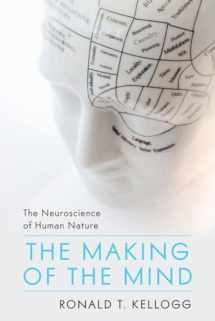
The Making of the Mind: The Neuroscience of Human Nature
Book details
Summary
Description
Using the findings of recent neuroscience, a psychologist reveals what sets humans apart from all other species, offering a fascinating exploration of our marvelous and sometimes frightening cognitive abilities and potentials. According to human genome research, there is a remarkable degree of overlap in the DNA of humans and chimpanzees. So what accounts for the rapid development of human culture throughout history and the extraordinary creative and destructive aspects of human behavior that make us so different from our primate cousins? Kellogg explores in detail five distinctive parts of human cognition. These are the executive functions of working memory; a social intelligence with "mind-reading" abilities; a capacity for symbolic thought and language; an inner voice that interprets conscious experiences by making causal inferences; and a means for mental time travel to past events and imagined futures. He argues that it is the interaction of these five components that results in our uniquely human mind. This is especially true for three quintessentially human endeavors-morality, spirituality, and literacy, which can be understood only in light of the whole ensemble's interactive effects. Kellogg recaps the story of the human mind and speculates on its future. How might the Internet, 24/7 television, and smart phones affect the way the mind functions?


We would LOVE it if you could help us and other readers by reviewing the book
Book review



